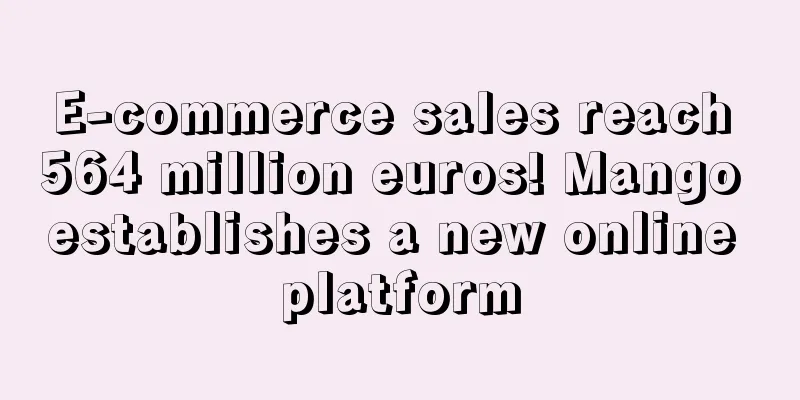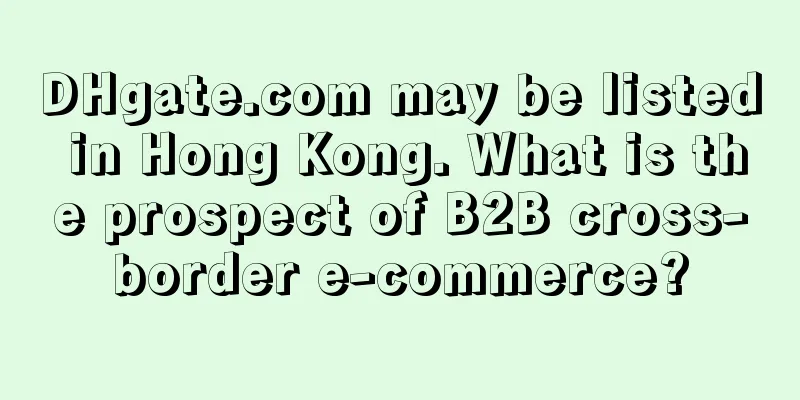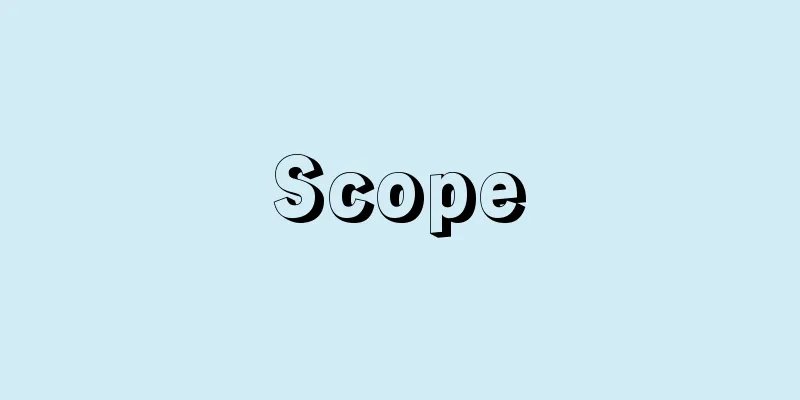E-commerce sales reach 564 million euros! Mango establishes a new online platform

|
It is reported that recently, Spanish fashion giant Mango announced the establishment of a brand new e-commerce platform, starting with the sale of third-party brand products from Italian lingerie brand Intimissimi .
It is reported that Intimissimi is the first third-party brand sold on the Mango platform. Mango has signed a three-year preliminary agreement with Intimissimi's parent company Grupo Calzedonia to sell a variety of clothing products of the brand in six markets including the UK, France , Germany , Spain , the Netherlands and Portugal . In addition, more markets will be added in the future.
“Our goal is not to become a giant multi-brand marketplace, but to expand our commercial offer to brands that match our positioning,” said Elena Carasso, Mango ’s online and customer director .
Mango uses its platform to provide its customers with more products that meet their needs and also attract new customer groups .
Mango was an early pioneer in fashion e-commerce , launching online in 2000, about a decade before its biggest Spanish rival, Zara . By the end of 2019, Mango’s e-commerce sales reached €564 million, accounting for 24% of the company’s total sales.
Mango’s move to establish an e-commerce platform is in line with the current development trend. At present , e-commerce channels have become a new trend at a time when many large domestic and international brands are seeking to create multi-brand online platforms to develop their businesses .
In the UK, Marks & Spencer will launch the first batch of third-party brands on its online platform later this week.
Marks & Spencer already sells sustainable fashion brand Nobody’s Child and will start selling Ghost, Joules, Phase 8, Hobbs, Seassalt and Finery London on Thursday. The company also recently acquired the Jaeger brand from the troubled Edinburgh Wool Mill group and will add the brand to its platform.
Of course, these brands will also be available in some Marks & Spencer stores . Like Mango, Marks & Spencer said it would not risk selling a large number of third-party brands, but only offer brands that complement existing products and can attract customers.
Global giant H&M also said it would use its online platform to sell third-party brands , while British giant Next has been selling third-party brands for many years and said it would expand its business in this area. Mango Spain E-commerce |
<<: Russian e-commerce WB Israel station results released: beauty products become popular
Recommend
What is Amazon Review? Amazon Review, Features
Amazon reviews, in short, are comprehensive and a...
Another Amazon seller quits: I will quit after clearing out my inventory...
The inventory capacity of a large number of Amazo...
Amazon Store Acquisition Continues to Be Hot: Recommend a Seller and Get a Tesla for Free
The cross-border circle has been quite unstable r...
What you need to know about social commerce
Social commerce is the fusion of e-commerce and s...
1 million active stores leverage 250 million users, Facebook may grow against the trend
According to foreign media reports, Facebook CEO ...
Driven by multiple factors, Christmas shopping in Europe and the United States has surged!
From the beginning of the year to the end of the ...
What is AIG? AIG Review, Features
AIG is a leading global insurance organization wit...
What is DaoMi Cloud? DaoMi Cloud Review, Features
DaoMi Cloud is a one-stop marketing SaaS and preci...
What is CrowdTangle Link Checker? CrowdTangle Link Checker Review, Features
The function of this plug-in is to detect the pop...
What is Vantage? Vantage Review, Features
Wantuo Technology is a cross-border retail enterpr...
What is Shenzhen Miaoxin International (Miaoshen Logistics)? Shenzhen Miaoxin International (Miaoshen Logistics) Review, Features
Shenzhen Miaoxin Logistics Co., Ltd. is a professi...
Southwest China's first cross-border import bonded factory is located in Chongqing Xiyong Comprehensive Bonded Zone
Customized for overseas pet food brands and consu...
Amazon will impose taxes on orders from two US states, TikTok launches new advertising plan
Amazon to impose taxes on orders from two US stat...
What is Craft Coffee? Craft Coffee Review, Features
Founded in 2012, Craft Coffee offers customers th...
The boss is in jail? Another service provider goes bankrupt, and a group of sellers are implicated
Cross-border e-commerce sellers and service provi...









